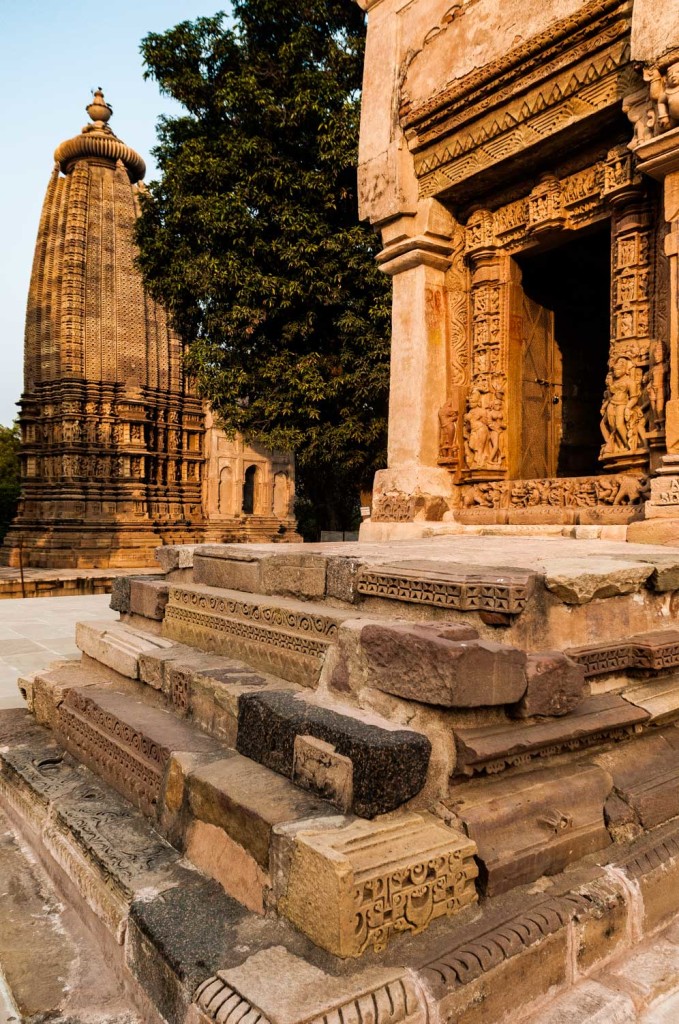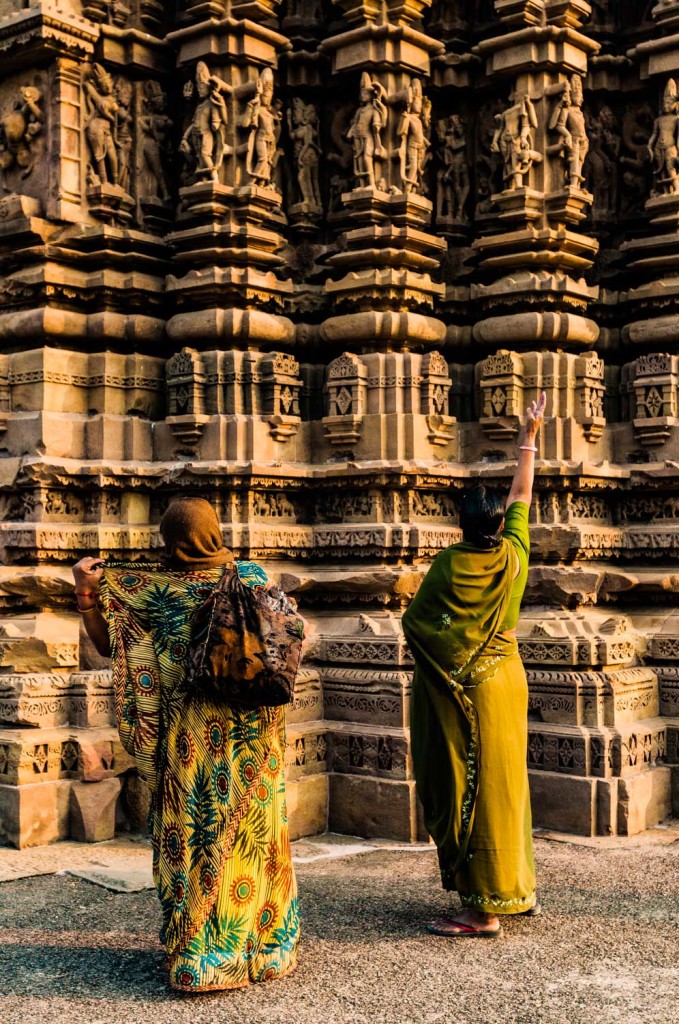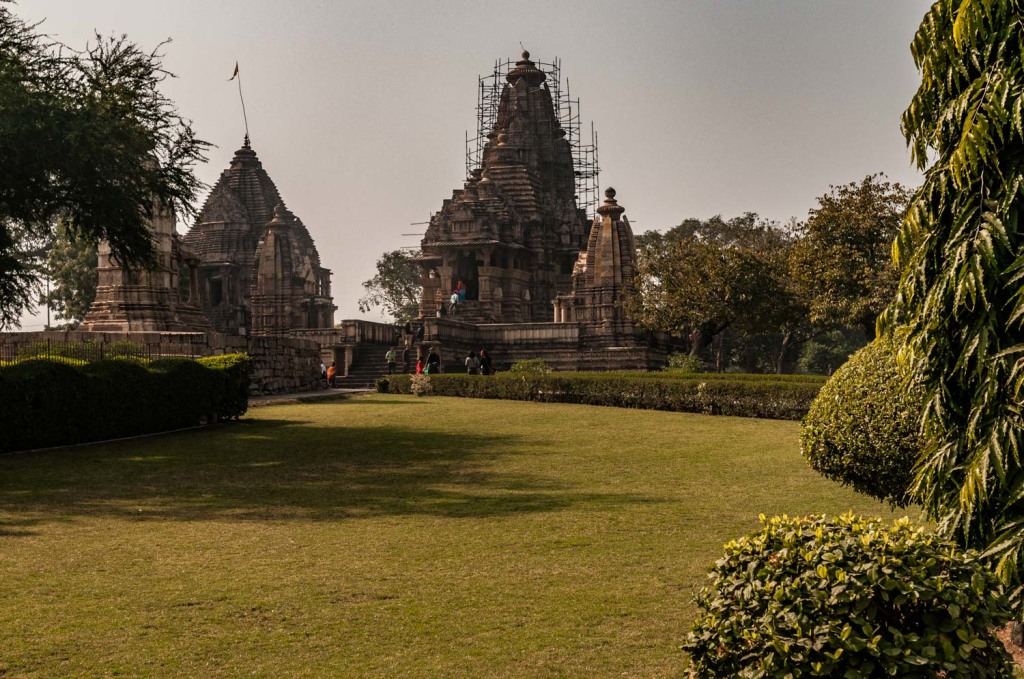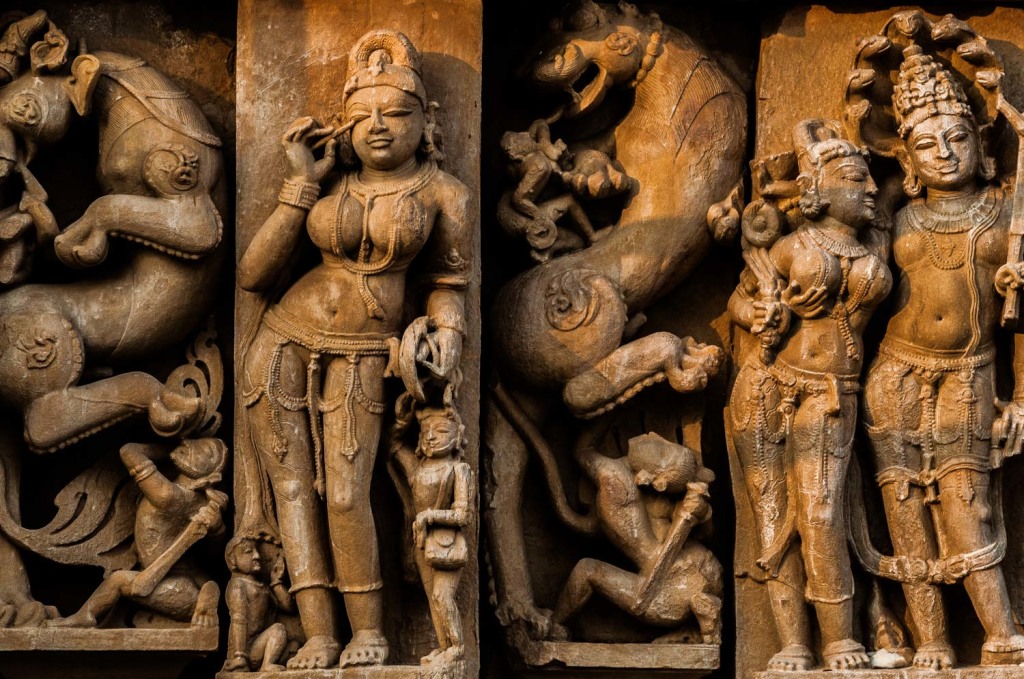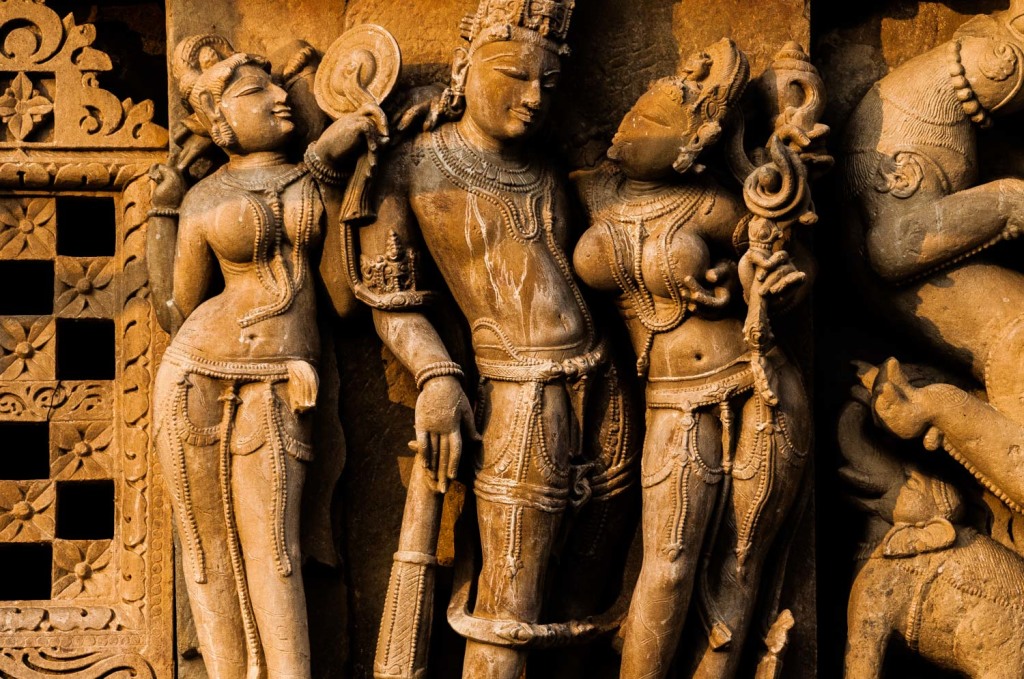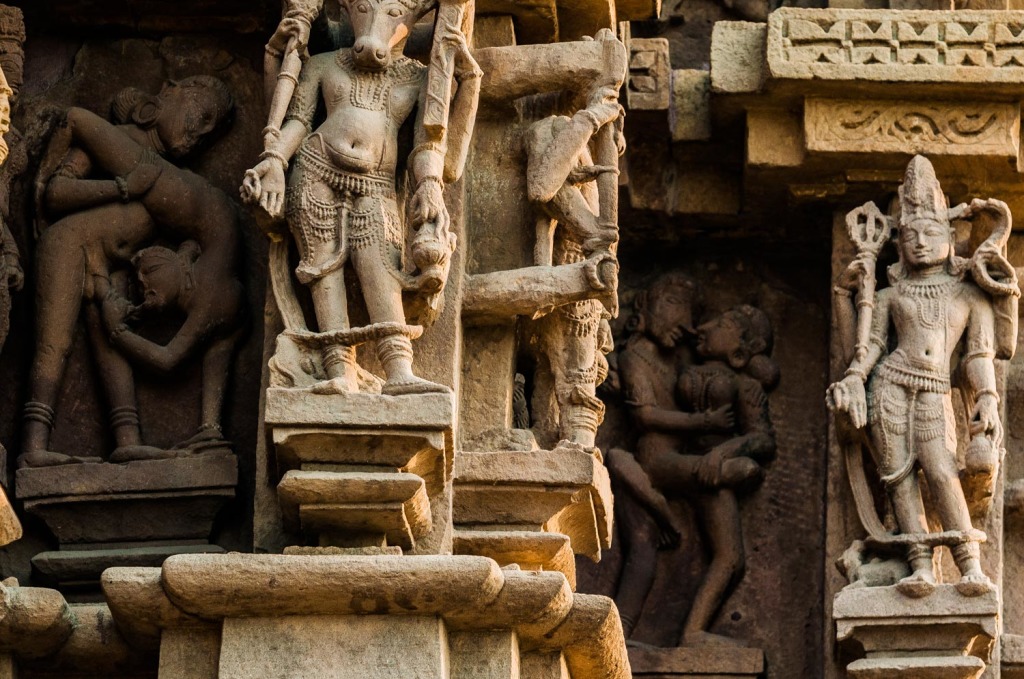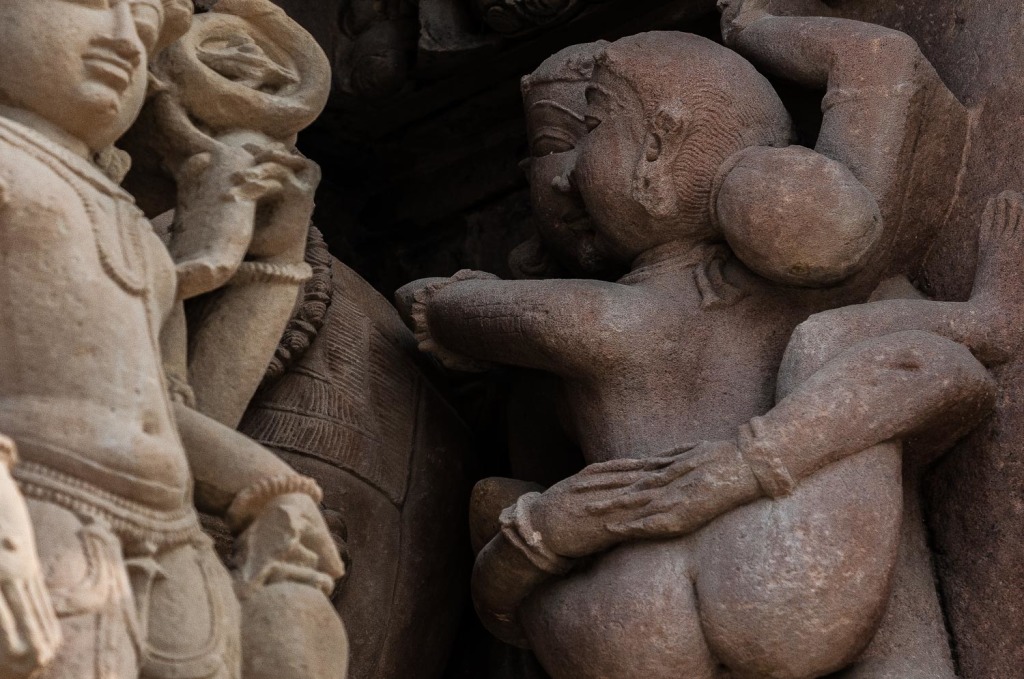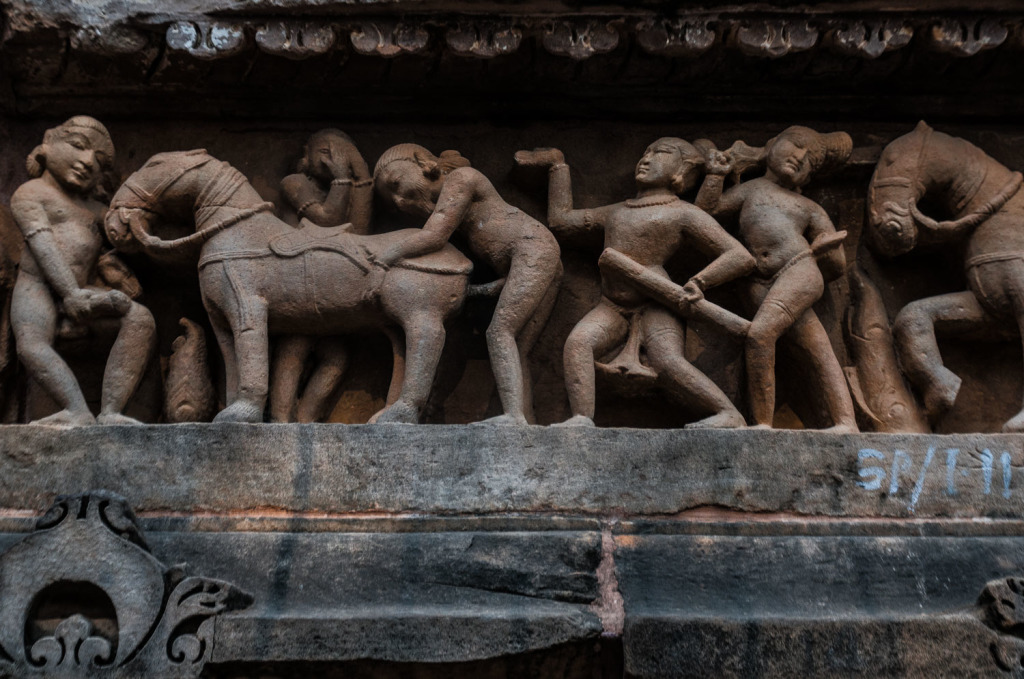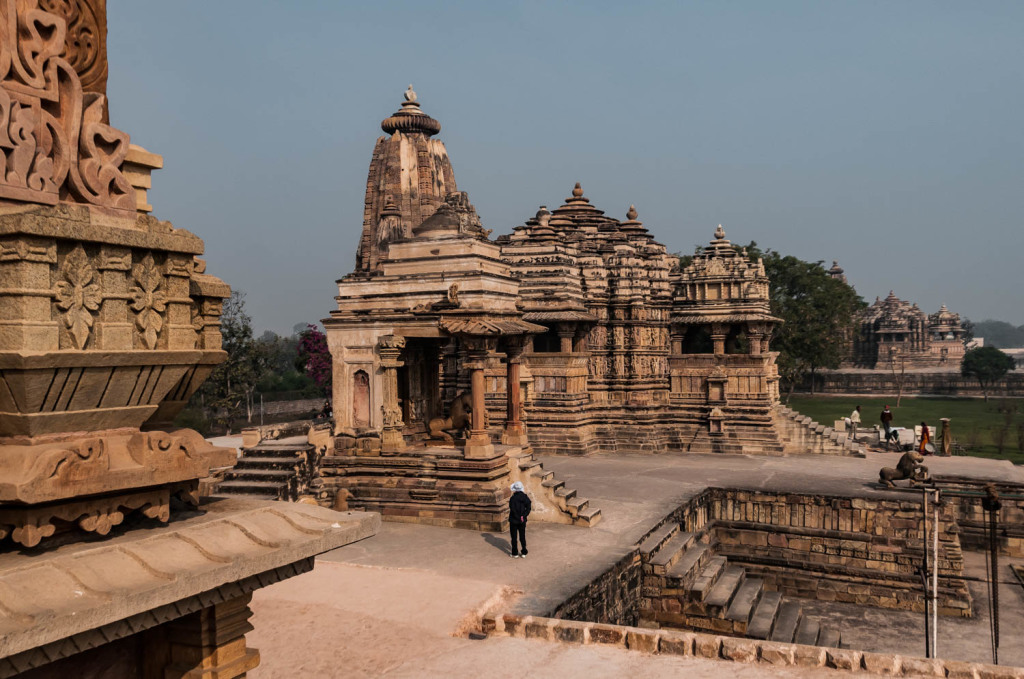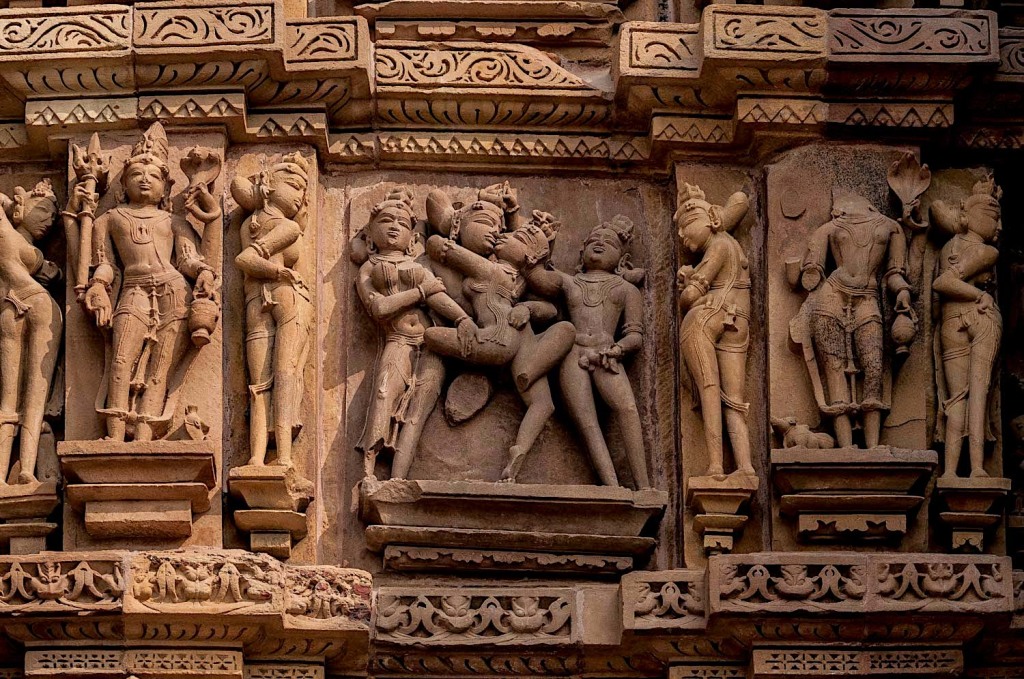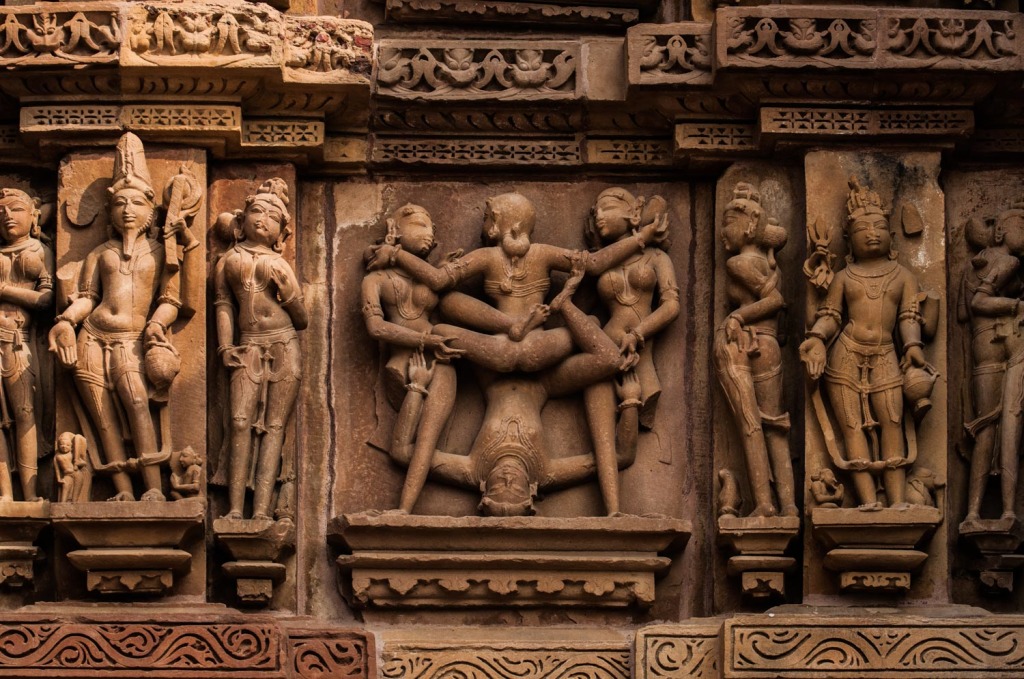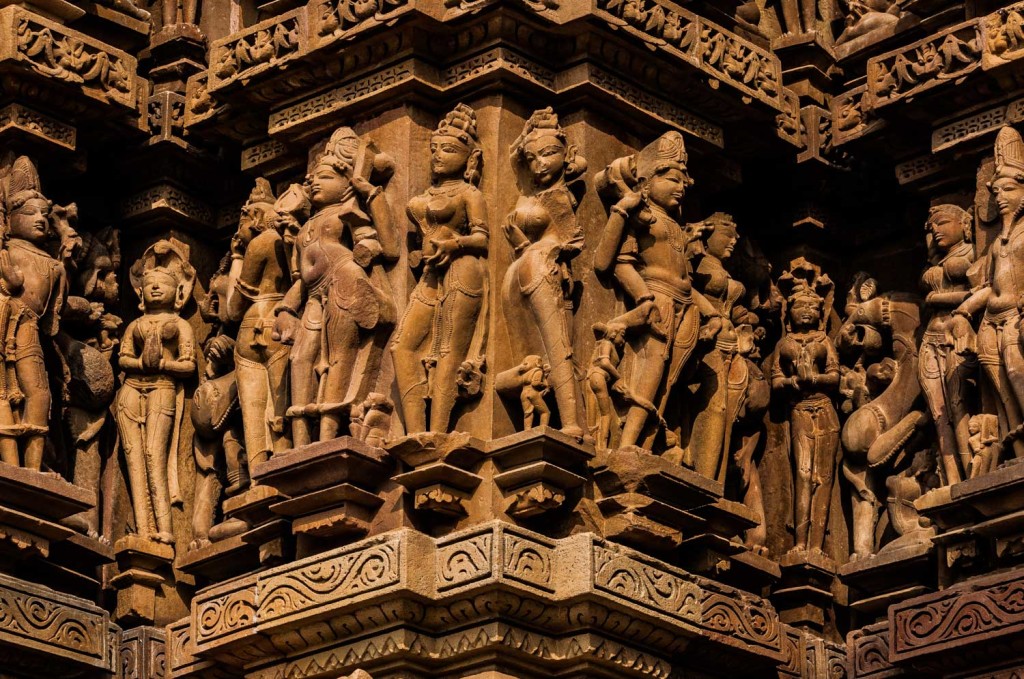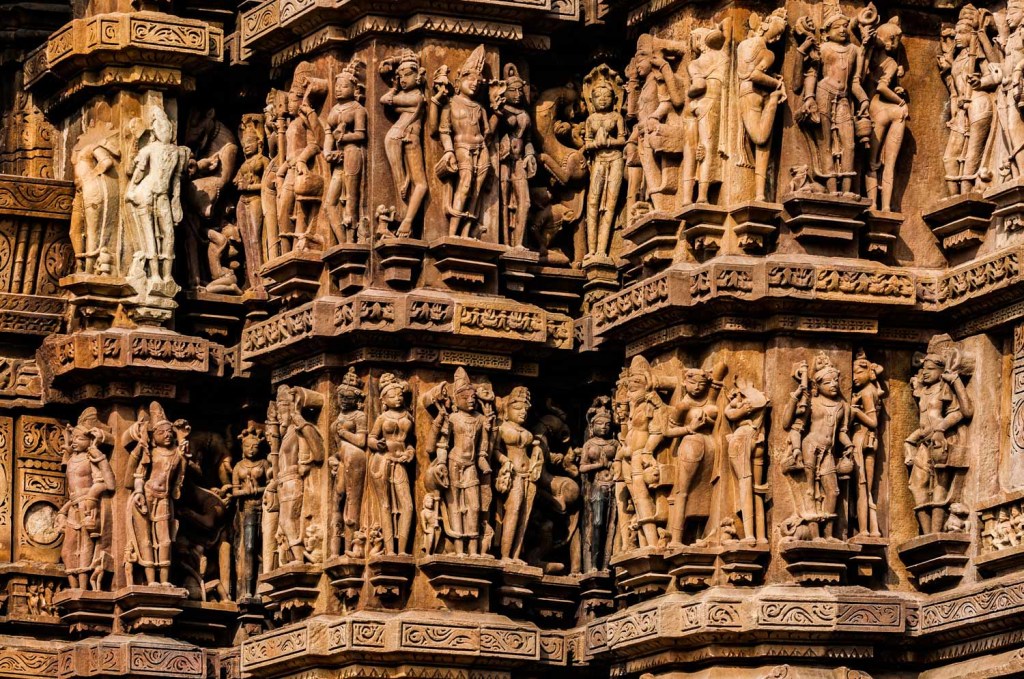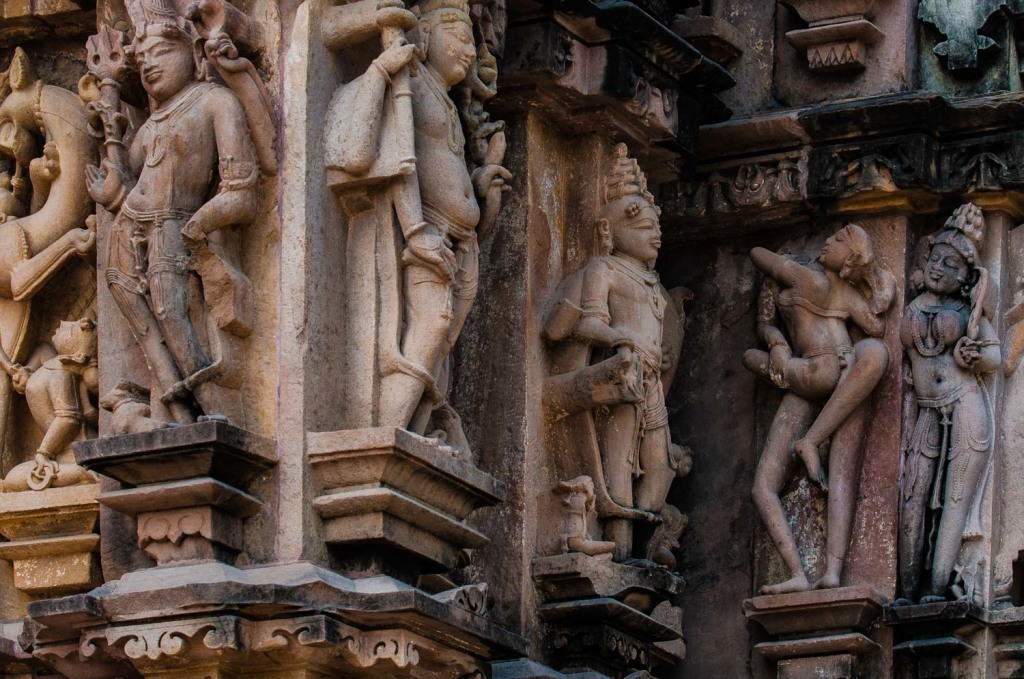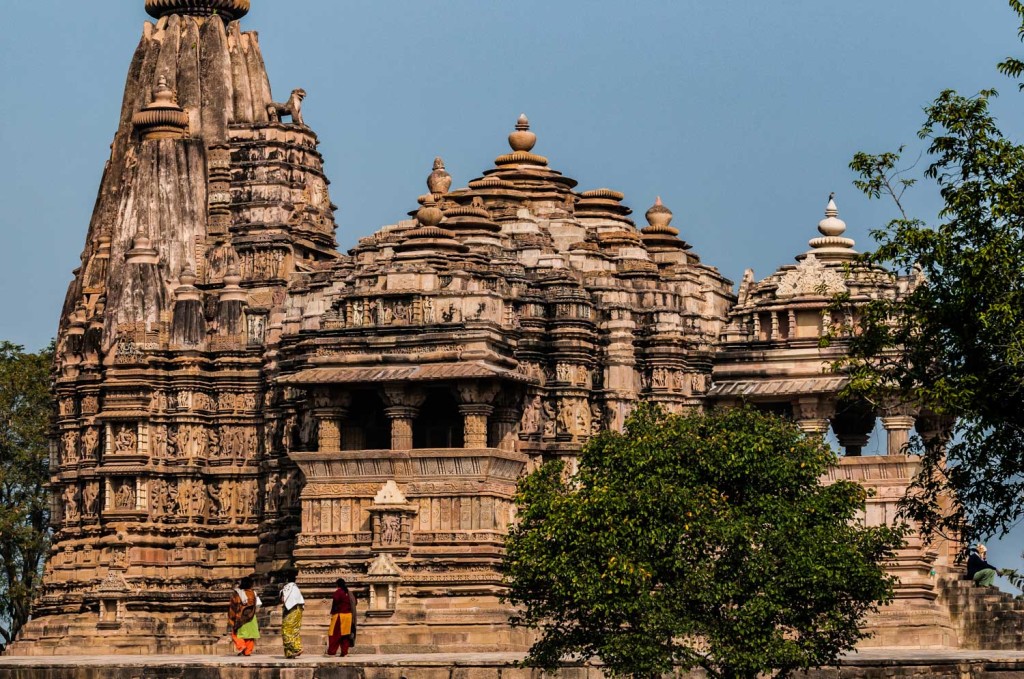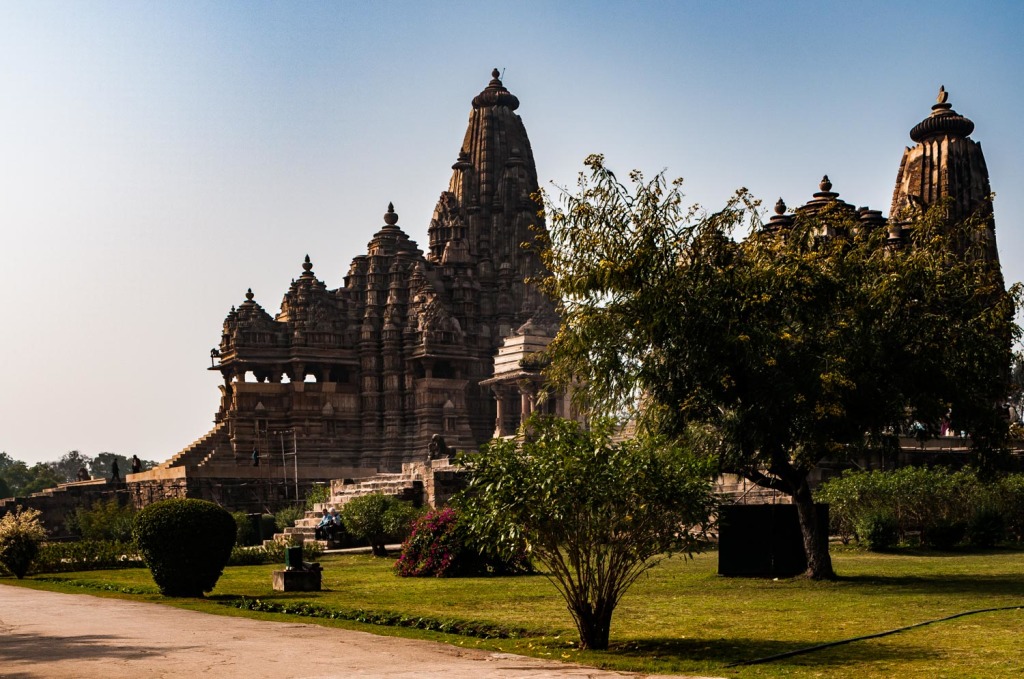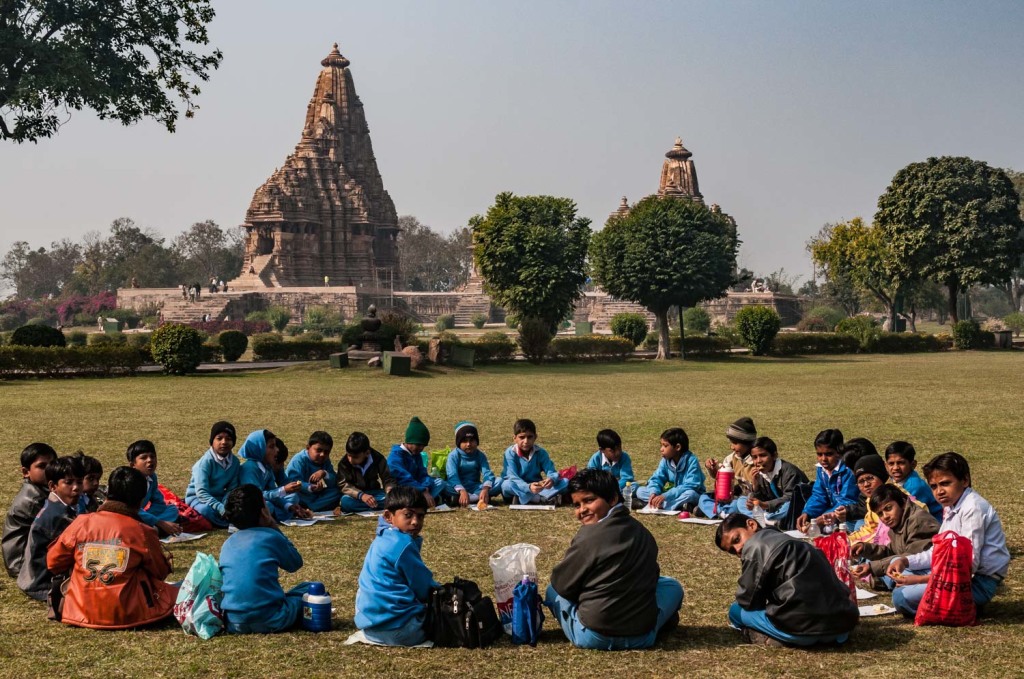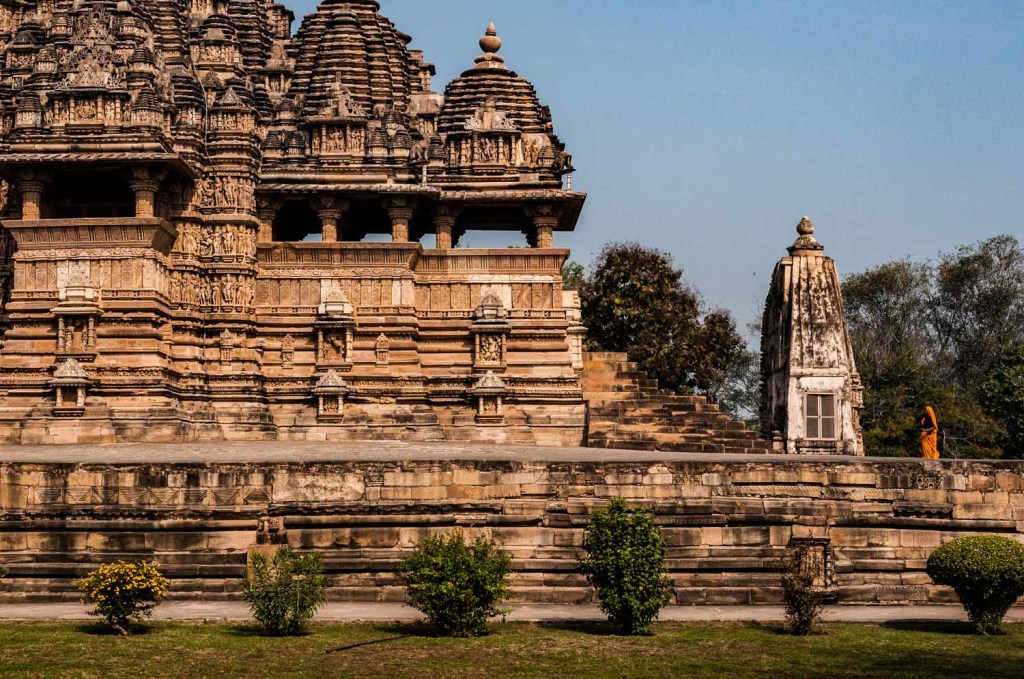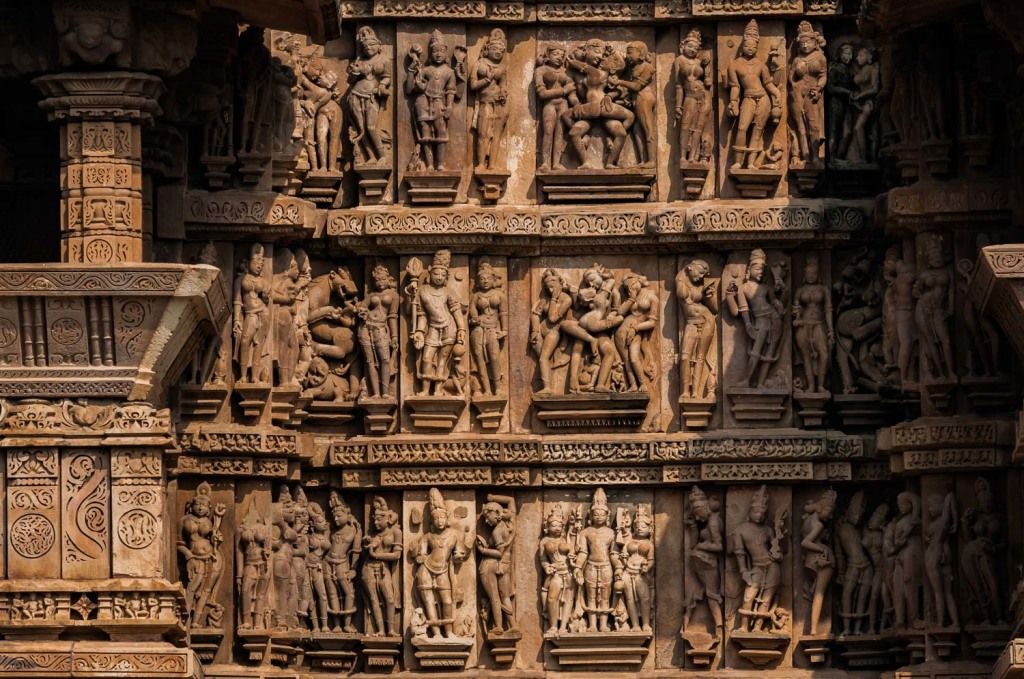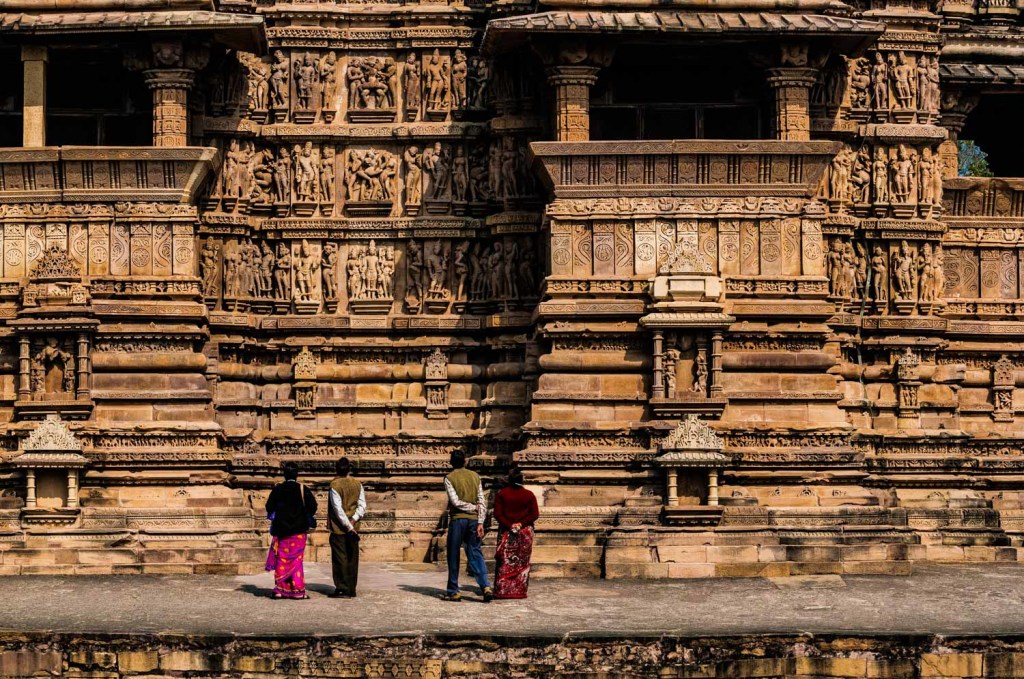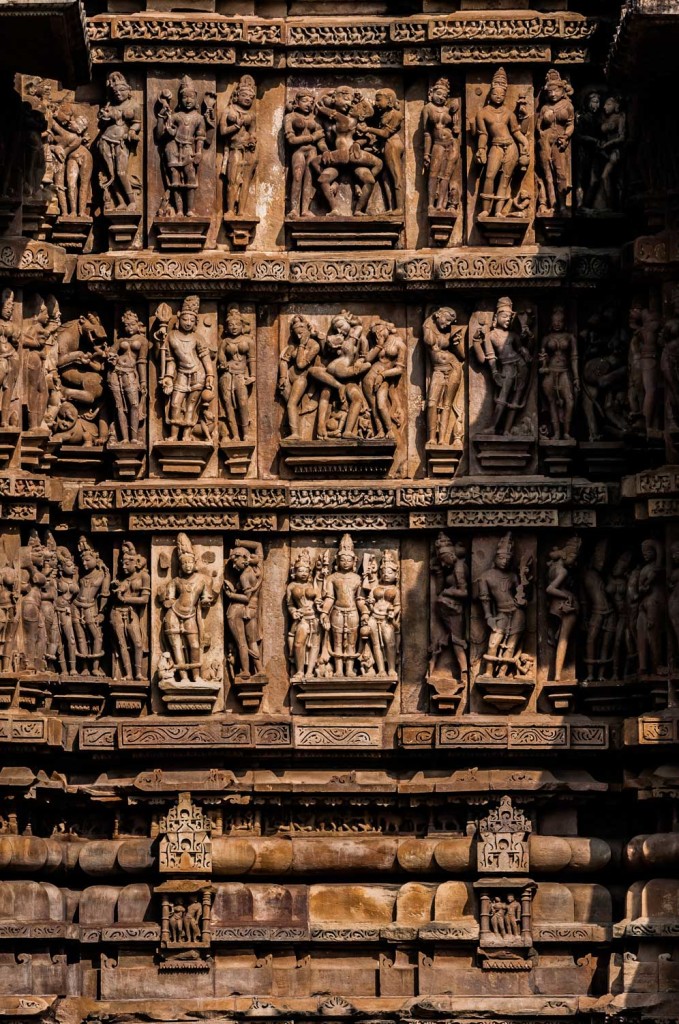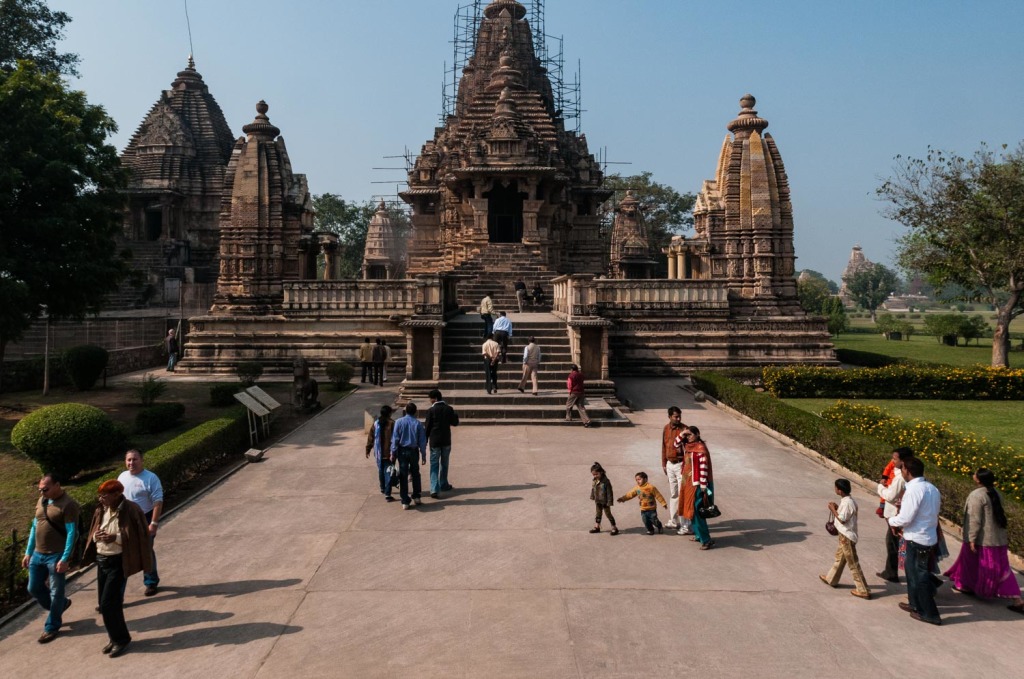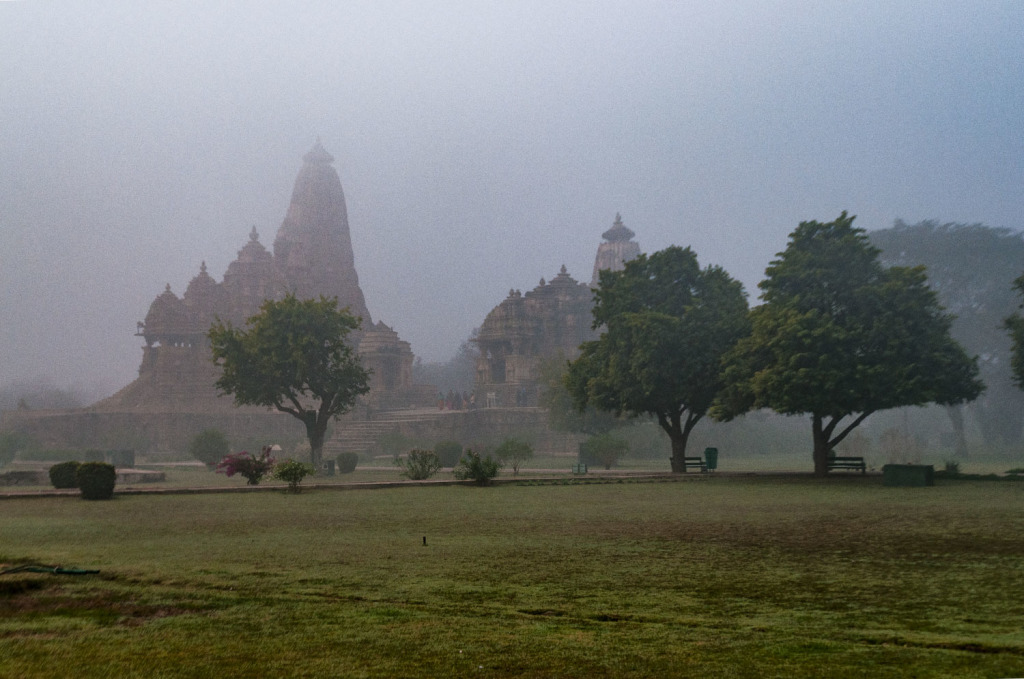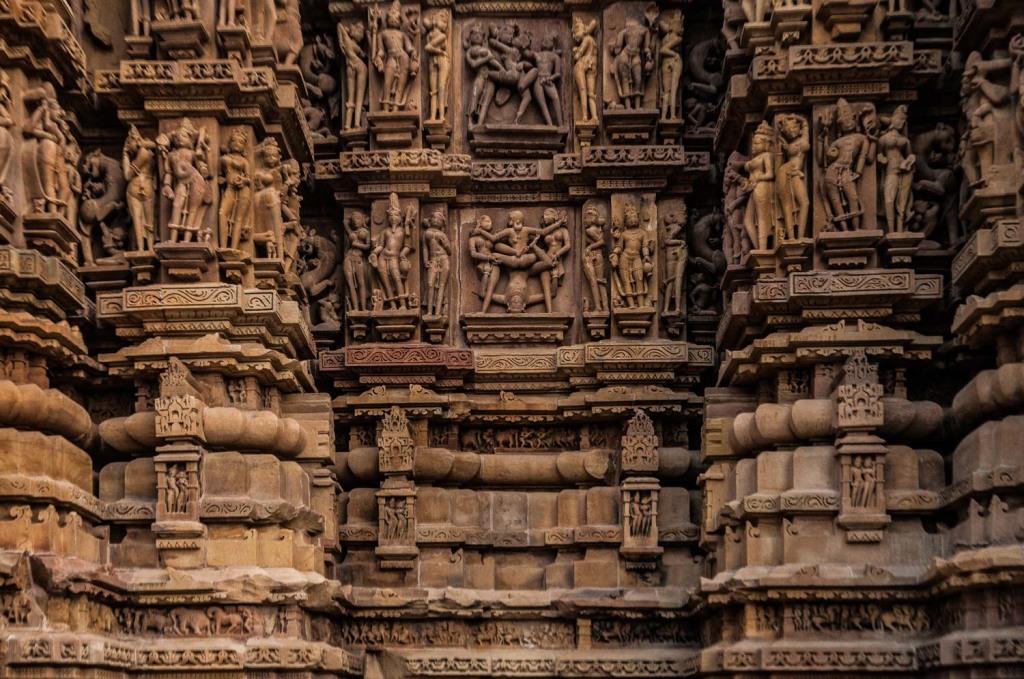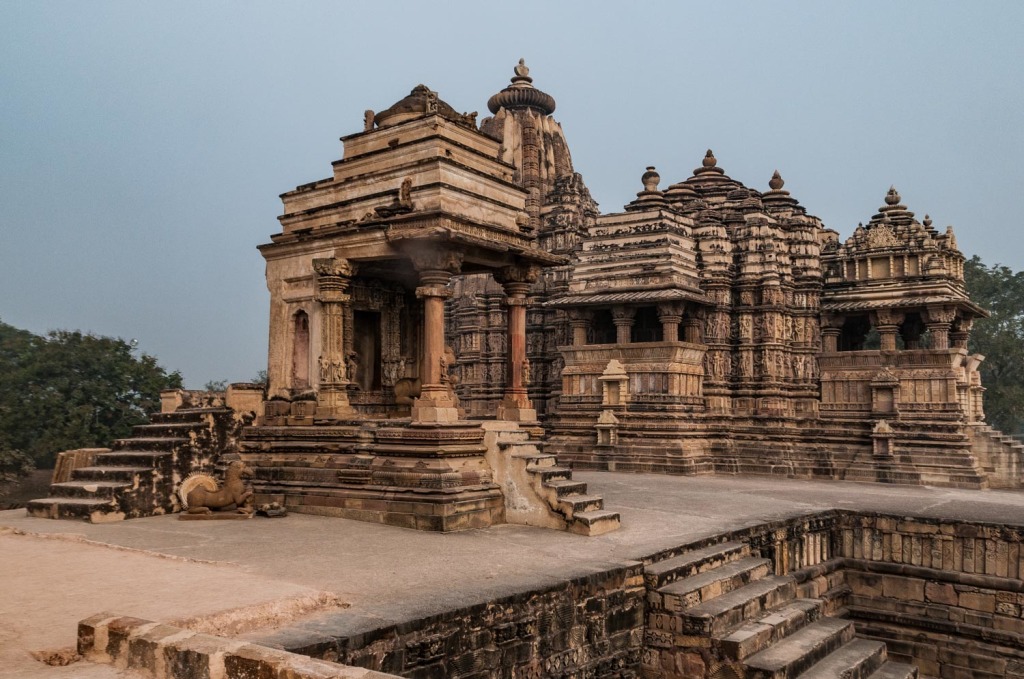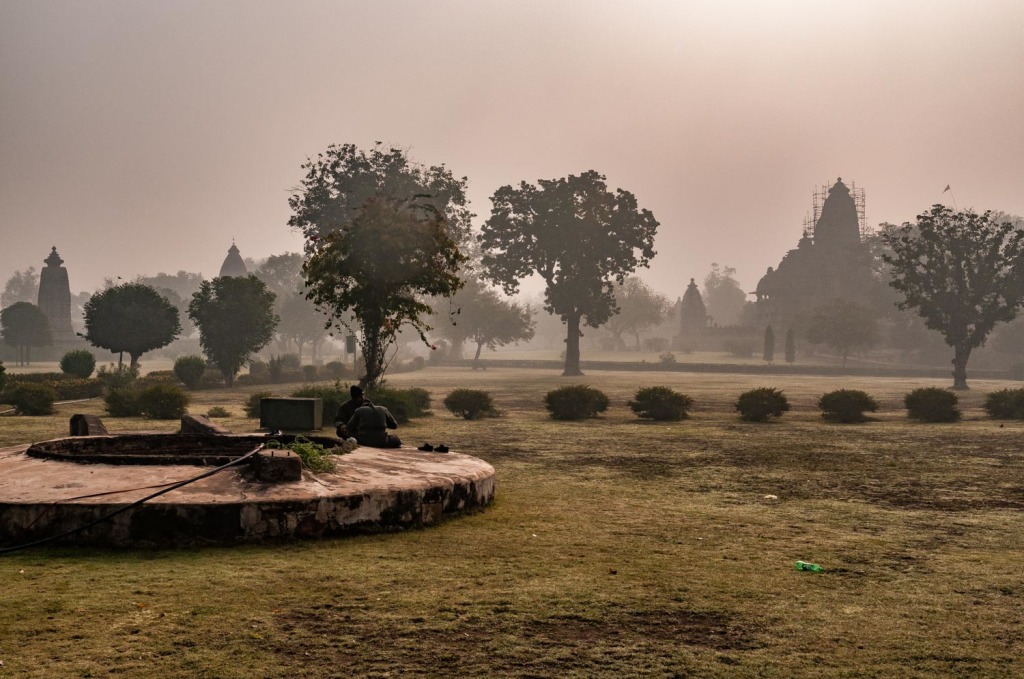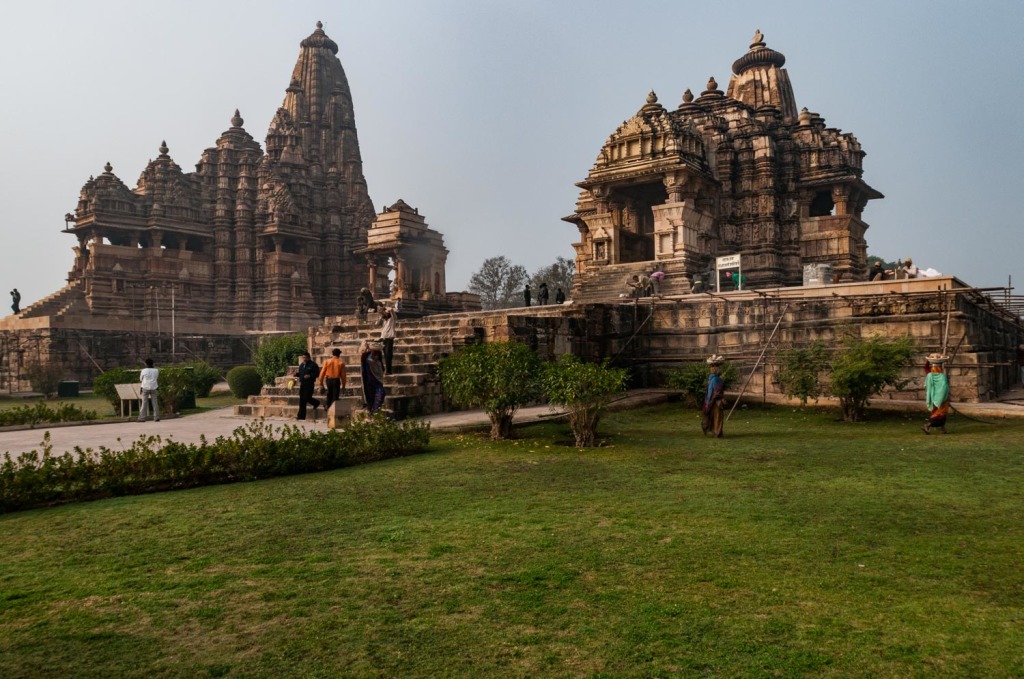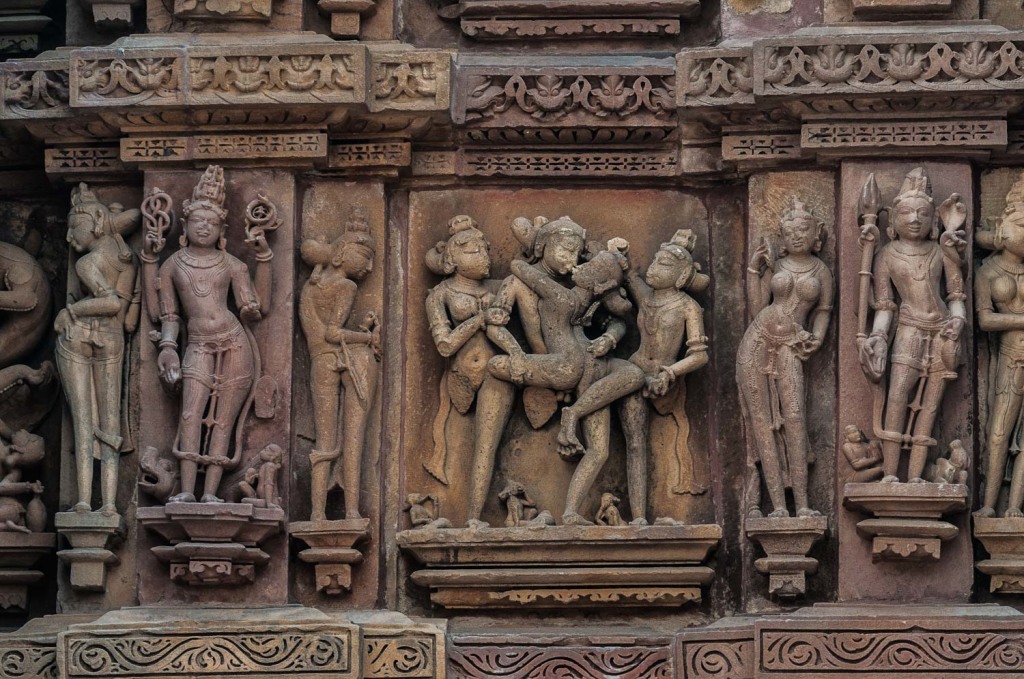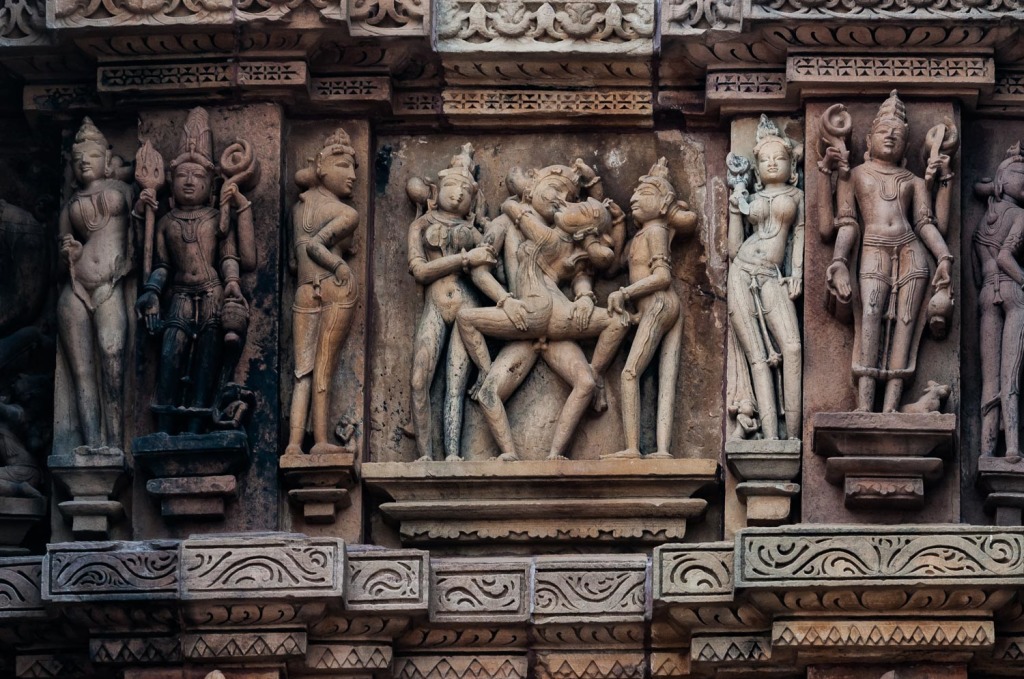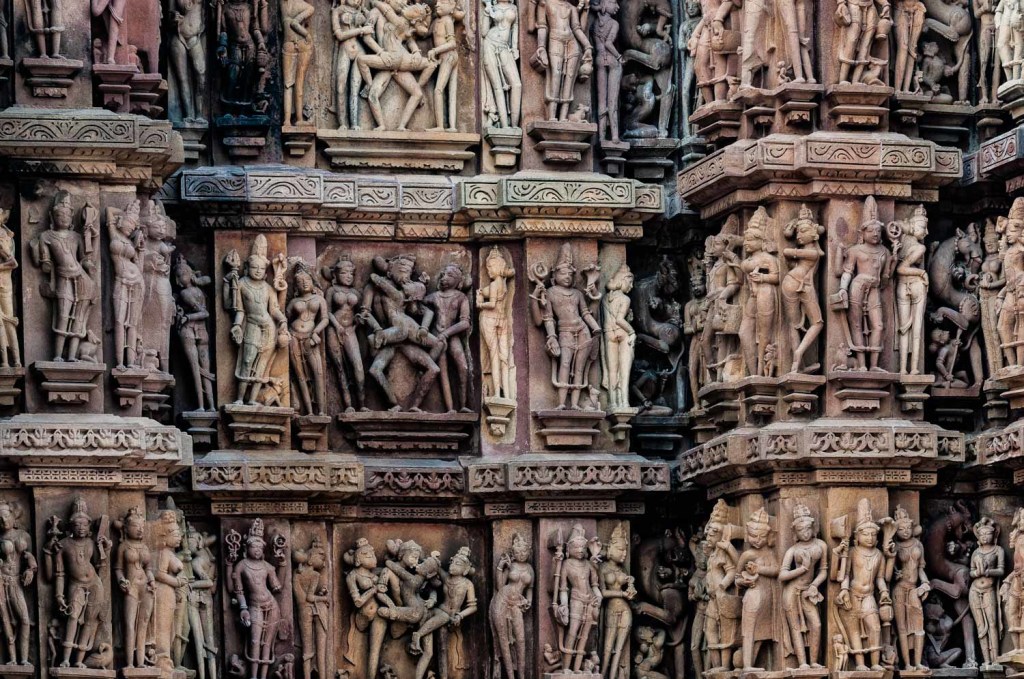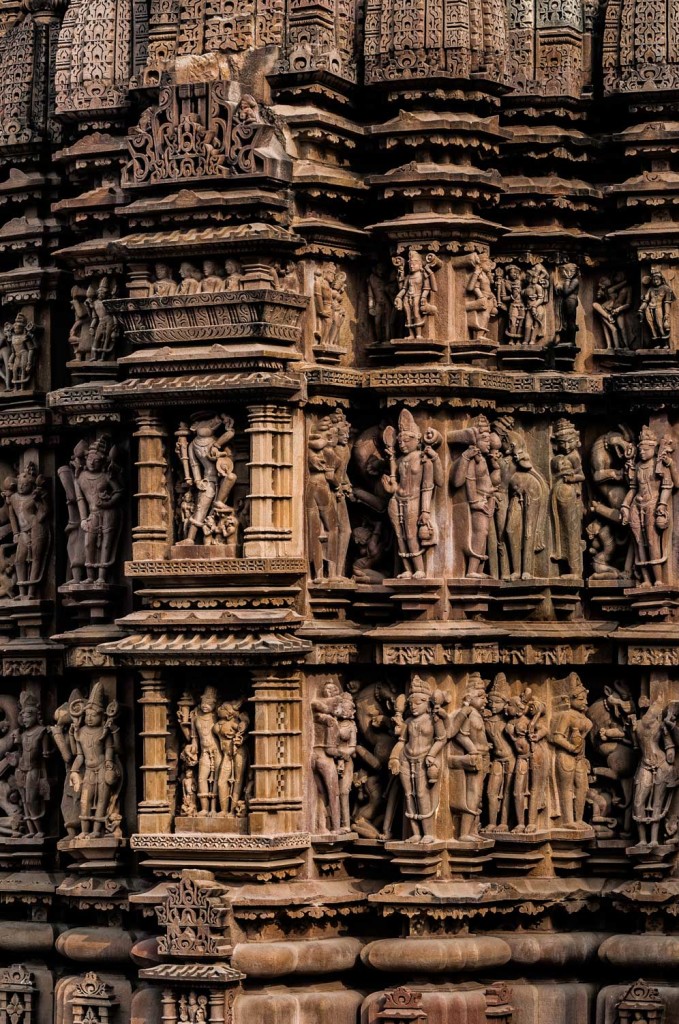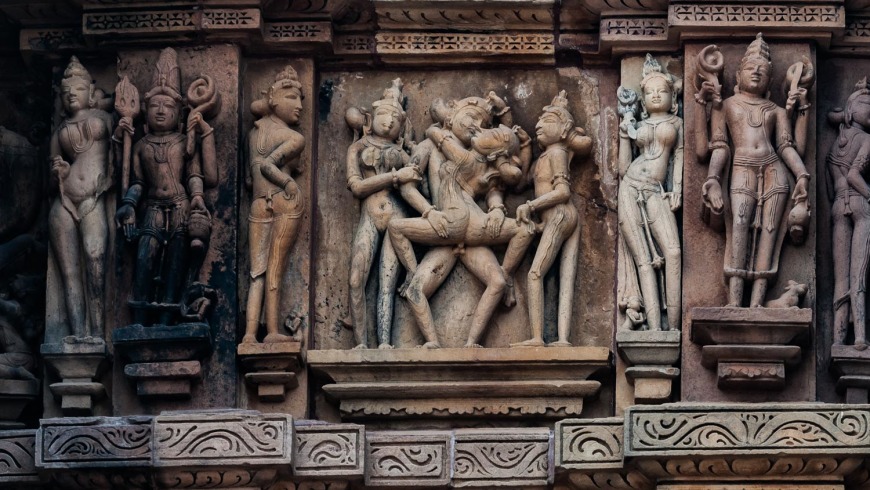
The famous Khajuraho Group of Monuments (Hindu, Buddhist and Jain temples) is located in Madhya Pradesh, near a small town also known as Khajuraho, in Chhatarpur district, about 620 kilometres (385 mi) southeast of New Delhi, India.
The temples, part of the UNESCO World Heritage Sites, are famous for their nagara-style architectural symbolism and their erotic sculptures. Most of them were built between 950 and 1050 by the Chandela dynasty. Historical records note that the Khajuraho temple site had 85 temples by the 12th century, spread over 20 square kilometers. Of these, only about 25 temples have survived. Of the various surviving temples, the Kandariya Mahadeva Temple is decorated with a profusion of sculptures with intricate details. The temples have a rich display of carved statues. While they are famous for their erotic sculpture, sexual themes cover less than 10% of the temple sculpture. Further, most erotic scene panels are neither prominent nor emphasized at the expense of the rest, rather they are in proportional balance with the non-sexual images. The arts cover numerous aspects of human life and values considered important in the Hindu pantheon. The temples are grouped into three geographical divisions: western, eastern and southern. The temples are made of sandstone, which can be precision carved, with a granite foundation that is almost concealed. The builders didn’t use mortar: the stones were put together with mortise and tenon joints and held in place by gravity. This form of construction requires very precise joints. The columns and architraves were built with megaliths that weighed up to 20 tons. Some repair work in the 19th Century was done with brick and mortar; however these have aged faster than original materials and darkened with time, thereby seeming out of place. The surviving sculpture reflect fine details such as strands of hair, manicured nails and jewelry.
